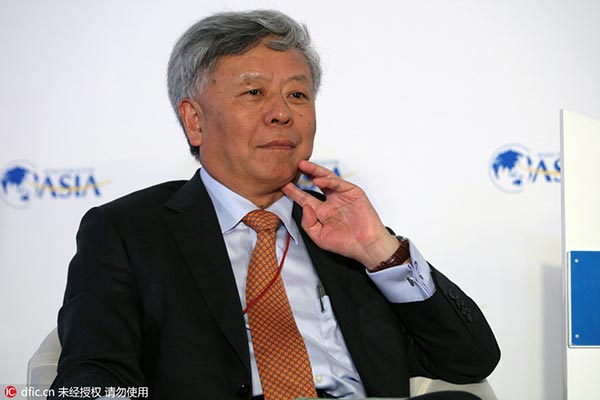 |
|
President of Asian Infrastructure Investment Bank (AIIB) Jin Liqun speaks at the Boao Forum for Asia Annual Conference, March 25, 2016.[Photo/IC] |
"The decision is up to the US. China is patient and there's no rush before the US gives it a clear thought," Jin Liqun made the comment at the Boao Forum for Asia Annual Conference.
The US and Japan have not joined the AIIB, despite the fact that the Beijing-based multilateral bank has already won over a majority of the G20 members and all BRICS countries.
A total of 57 countries signed up as founding members last year, before the AIIB began operations in January.
The AIIB was first proposed by Chinese President Xi Jinping in 2013 and is headquartered in Beijing, with an authorized capital of $100 billion.
China, being the biggest shareholder, is obliged to provide all kinds of support for the institution and set to win the trust and confidence of other shareholders, said Jin at an open event earlier this month.
The bank has been working closely with the World Bank Group, the Asian Development Bank and the European Bank for Reconstruction and Development to identify possible co-financing projects, he said.
Jin expected the first loans to be approved before the end of this year. The scale of loans in the first year will likely be modest - between $500 million and $1.2 billion - with energy, power, transportation, rural infrastructure, environmental protection and logistics the priorities.
Jin, making his debut appearance earlier in January as the bank's chief, vowed to uphold the AIIB as a "clean, lean and green" institution with the highest international standards.
The bank aims to complement and cooperate with existing multi-lateral banks, and serve the growing demand of Asia's infrastructure investments.
